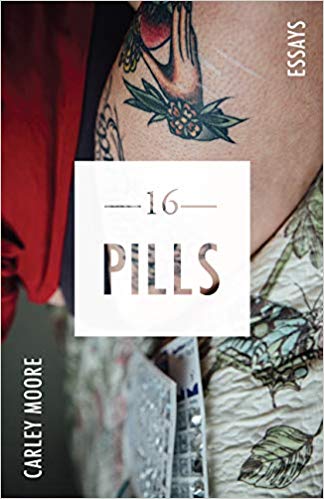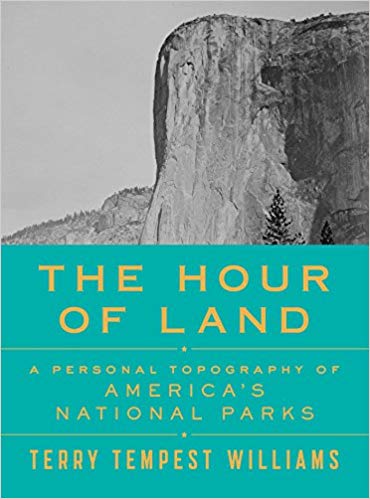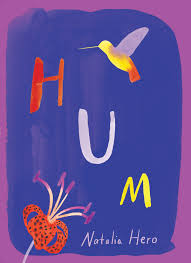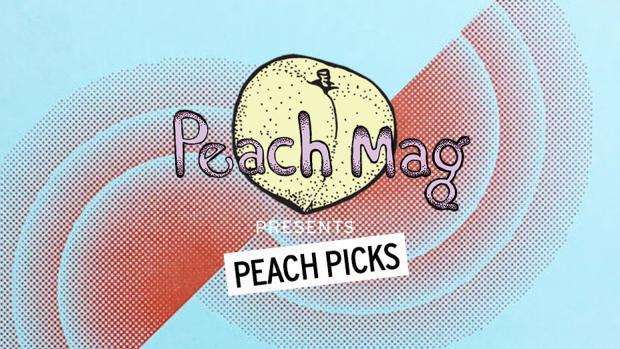Peach Picks: 3 Things to Read This Week
LIZ’S PICK:
16 Pills by Carley Moore
Tinderbox Editions | 2018 | Nonfiction (essays)

“In my essays, I plan to wallow and wander, to get stuck and linger over painful moments and difficult texts. I am trying to figure something out here and to name it for myself and for you my dear friend.” Carley Moore is a teacher, that much is clear. In her capacious and questioning essay collection 16 Pills, based in part on her lifelong experience of chronic illness, Moore invites her readers to read and write differently, to rethink our desires for a narrative drive toward cure, or the resolution rather than exploration of pain. That doesn’t mean, though, that there is no place for pleasure; even as the essays’ speaker is wrecked by SSRI withdrawal or otherwise grappling with the messy implications of a life “constructed” by pharmaceuticals, she maintains a robust roster of talented lovers and romantic friendships that explode stale notions of illness and disability as asexual states of suffering. Meanwhile, Moore plays with the mundanities of motherhood, like the absurdly high stakes of New York birthday parties, or nitpicking—literally, picking lice from a kid’s hair—in ways that yield fresh insights on class anxiety, nontraditional familymaking, and the constant work of learning from one’s mistakes, both personal and political. This is a book that performs its own learning, avowing its risks and failures, as much as it offers valuable lessons—a vulnerable ethos that many writers and teachers may aspire to, but few have so fully embraced.
SAGE’S PICK:
The Hour of Land by Terry Tempest Williams
Sarah Crichton Books (Farrar, Straus and Giroux) | 2016 | Biography

Terry Tempest Williams’ The Hour of Land is exactly what its subtitle claims it is: “a personal topography”—emphasis on the personal. A world-renowned author with fifteen books under her belt, Williams wrote The Hour of Land not as a tourist attraction or a guidebook, but as a private look into her life and all the life that exists around us. In a section about her experiences at Big Bend National Park, for instance, she describes the desert as her own “unknowing”; by juxtaposing the blunt animalistic nature of Earth with the complex internal workings of the human mind, she not only digs into her personal feelings, but into the history of each of these landscapes, the people who reside there, and the politics involved. The writing is alive and full of emotion, bursting at the seams with thoughtful and gorey details. Though predominantly written in essay form, Williams fluctuates between poetic excerpts from notebooks, anecdotes, and minor history lessons. The Hour of Land is a multifaceted piece of writing that I find myself drawn to again and again—drawn to the “notebook painted with rabbit blood” and the brutally honest critique of American politics and priorities. Terry Tempest Williams reminds us of the beauty of these national parks, the sacred space found in the land, and the conflicts rooted within our history. From Grand Teton to Gates of the Arctic to Glacier National Park, she invites us into the wild, and reminds us that “the world is home” and we must nurture it.
RACHELLE’S PICK:
Hum by Natalia Hero
Metatron Press | 2018 | Novella
 “Pain is only beautiful when it doesn’t belong to you,” Natalia Hero writes in Hum, her debut novella out last year with the Montreal-based publisher Metatron Press. Hum is the story of a young woman whose life is changed forever when, after being raped, she gives birth to a hummingbird. In devastating and sobering prose, Hero’s protagonist struggles through feelings of shame, resentment, and alienation in the face of needing to maintain—at turns feeding and hiding—this physical manifestation of her trauma; how can we care for something that brings us pain to acknowledge? “And I think, Help. I need Help,” Hero writes. “But I don’t say that, because you don’t say that. You don’t say you need Help unless you know what Help you need.” Meanwhile, the nameless creature (“I guess I just figured if I didn’t have a name to call it then I could pretend it didn’t exist”) goes on making a sound that never stops. Hum is an urgent story of the ways we survive, externalize, and heal trauma through the ever-present humming of living with a secret. It’s an unforgettable wow of a debut.
“Pain is only beautiful when it doesn’t belong to you,” Natalia Hero writes in Hum, her debut novella out last year with the Montreal-based publisher Metatron Press. Hum is the story of a young woman whose life is changed forever when, after being raped, she gives birth to a hummingbird. In devastating and sobering prose, Hero’s protagonist struggles through feelings of shame, resentment, and alienation in the face of needing to maintain—at turns feeding and hiding—this physical manifestation of her trauma; how can we care for something that brings us pain to acknowledge? “And I think, Help. I need Help,” Hero writes. “But I don’t say that, because you don’t say that. You don’t say you need Help unless you know what Help you need.” Meanwhile, the nameless creature (“I guess I just figured if I didn’t have a name to call it then I could pretend it didn’t exist”) goes on making a sound that never stops. Hum is an urgent story of the ways we survive, externalize, and heal trauma through the ever-present humming of living with a secret. It’s an unforgettable wow of a debut.
———
“Peach Picks” is a column of literary news and recommendations written by the editors of Peach Mag, an online literary magazine based in Buffalo, New York. For inquiries, contact the editors at peachmgzn@gmail.com.

